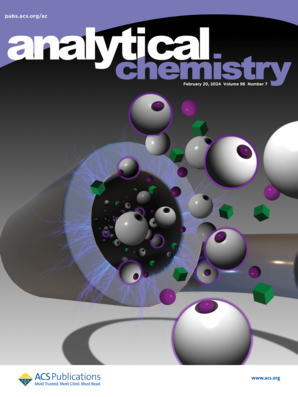CRISPR/Cas12a Corona Nanomachine for Detecting Circulating Tumor Nucleic Acids in Serum
Abstract
Circulating tumor nucleic acids (CTNAs), which consist of cell-free DNA or RNA released from tumor cells, are utilized as potential biomarkers for diagnosing and managing tumor prognosis. There is a significant demand for developing a highly sensitive and reliable assay for CTNAs detection. In this study, we engineered a CRISPR/Cas12a corona nanomachine capable of detecting circulating tumor DNA and RNA in serum. This nanomachine consists of a protein shell incorporating Cas12a/crRNA ribonucleoprotein complexes and a scaffold AuNP core decorated with substrate ssDNA strands. The protective CRISPR corona shields the nucleic acid core from degradation by nuclease DNase/RNase, thereby enhancing the stability of the CRISPR/Cas12a corona nanomachine in biological fluids, even tolerating up to undiluted human serum and FBS. Upon encountering target CTNAs, the CRISPR/Cas12a is activated through the sequence-specific hybridization between crRNA and CTNAs. Subsequently, the activated CRISPR/Cas12a autonomously cleaves the collateral ssDNA substrates on AuNPs, releasing the fluorophore-labeled fragment and generating an increasing fluorescent signal. The CRISPR corona nanomachine was successfully employed to detect various CTNAs, including circulating tumor (ct)DNA/RNA (EGFR L858R) and microRNA-21, achieving a limit of detection of 0.14 pM for ctDNA and 1.0 pM for RNA. This CRISPR corona nanomachine enables simultaneous detection of both DNA and RNA in complex biological samples, offering a promising tool for early diagnosis.





